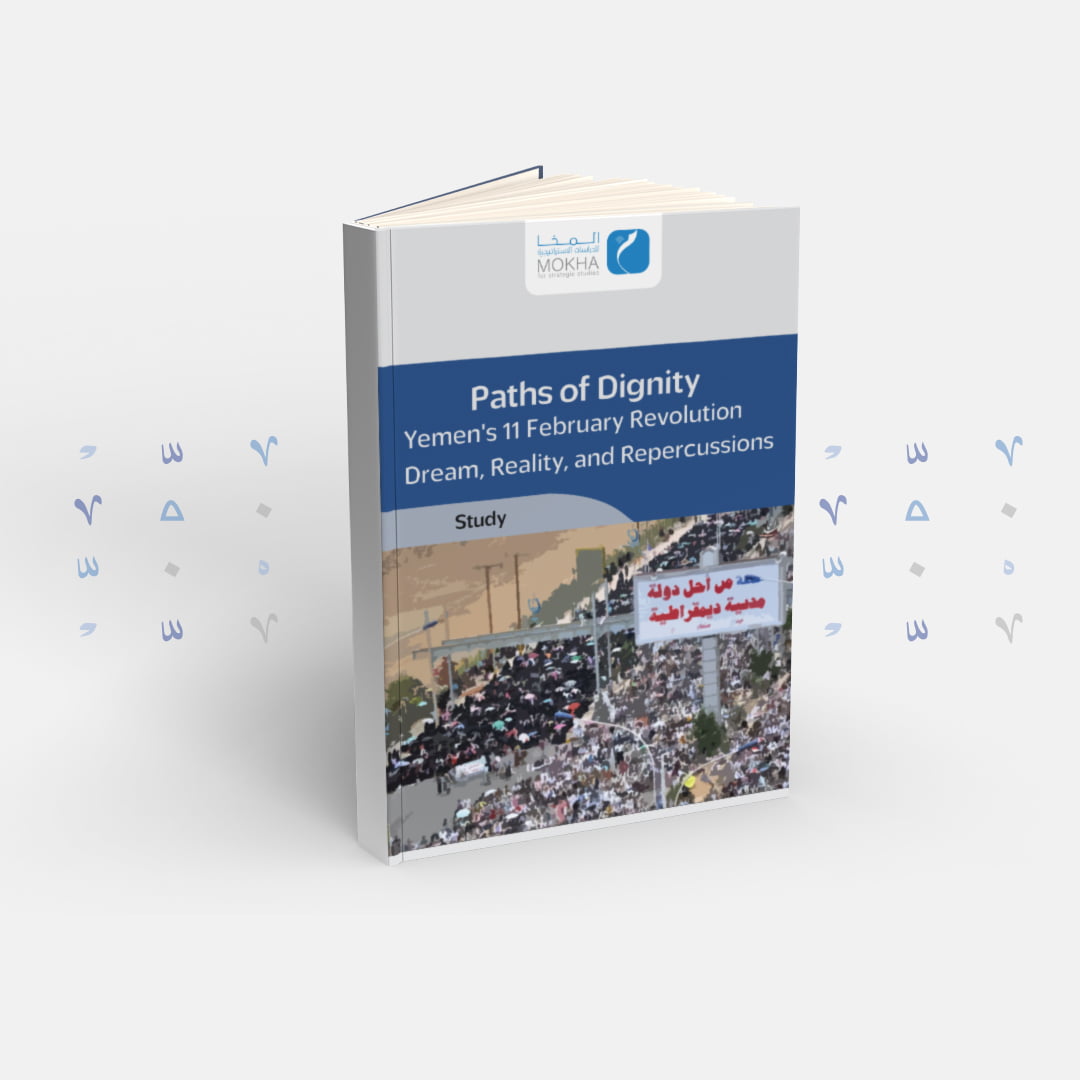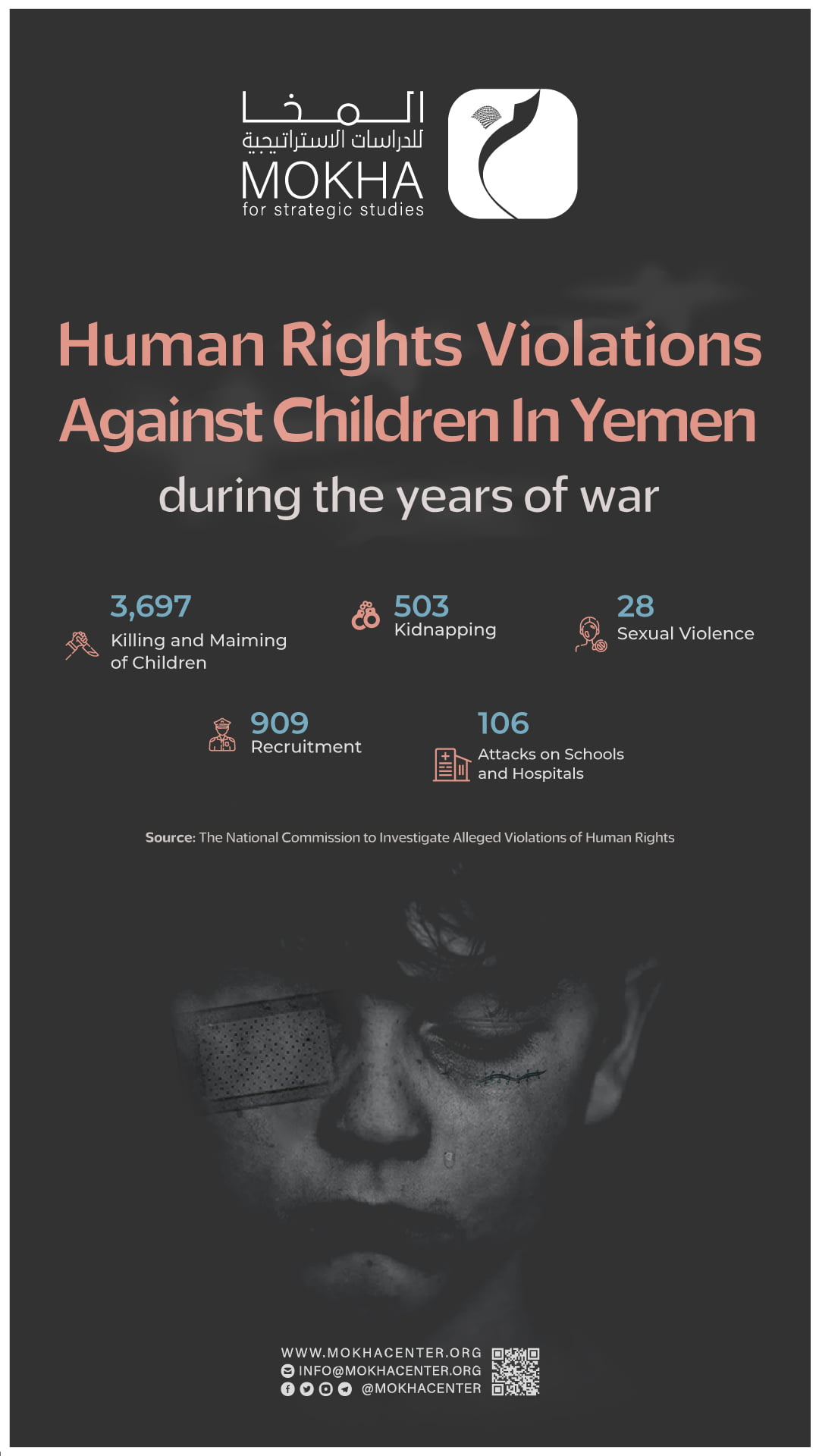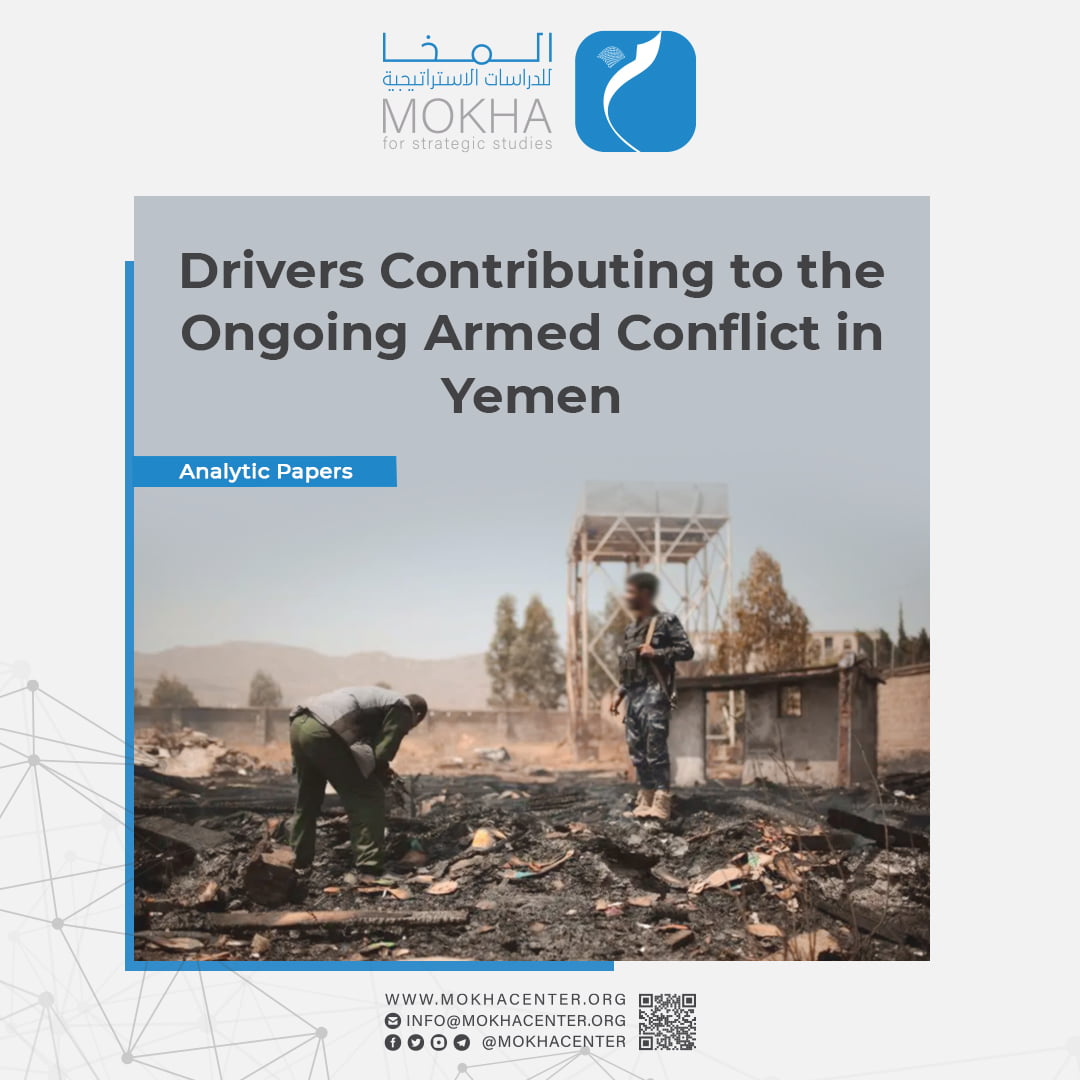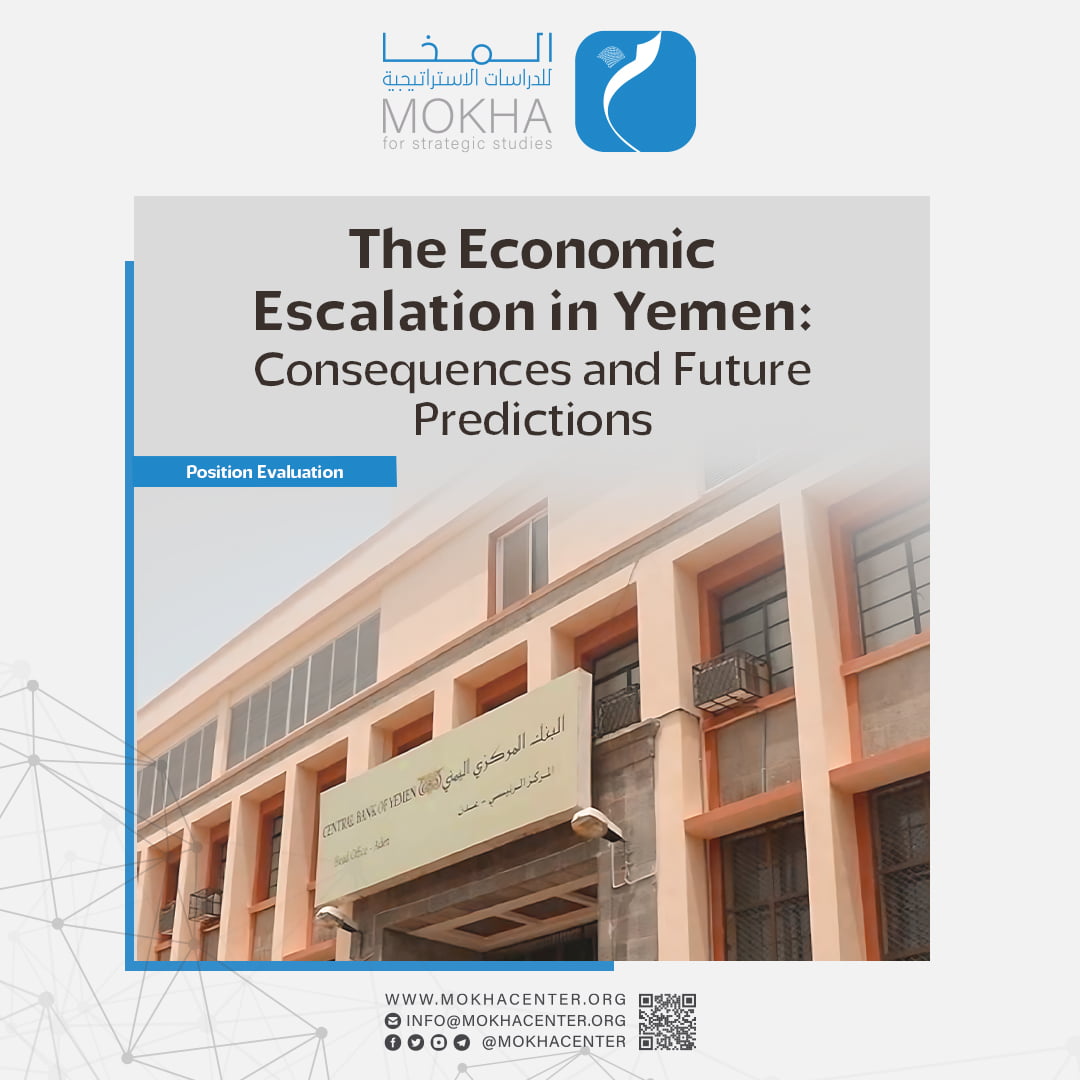What Lies Behind the Southern Transitional Council Meeting?

| Getting your Trinity Audio player ready... |

Introduction:
The Emirati-affiliated Southern “Transitional” Council (STC) called a number of political figures and groups in the south of Yemen to what it considered a “southern-southern” discussion, later naming it the “Southern Consultative Meeting.” The meeting was held in the city of Aden from the fourth to the eighth of the current month (May 2023). Among the declared aims of the meeting were an agreement on a code of honor for the southern political forces, and a unified vision with regards to participating as a single delegation in the future negotiations for a comprehensive solution in Yemen under the STC’s leadership.
The meeting was accompanied by a declaration of the restructuring of the “transitional” council. This likely points to an attempt to absorb new political forces in the south, in light of the council’s confirmation that it is not “a political party, but the unified entity for all southerners, and will represent of them in their different orientations.”
However, most of the influential social components and forces in the southern and eastern governorates rejected this claim, with the exception of a limited number of individuals and entities, making it appear more of a “transitional-transitional” dialogue. After signing the “Southern National Accord,” Aidarus al-Zoubaidi, president of the council, announced a number of decrees with the aim of restructuring the council, the most prominent of which was the appointment of two of the southern representatives to the Presidential Leadership Council as representatives to the STC. This was contra the general impression of the consultative meetings, and raised concerns among supporters of Yemeni unity that regional countries will accept these accords and are preparing a dangerous path targeting Yemen’s stability and unity, especially given that both figures have so far not refused their appointment.
In this brief article, we will answer the following questions. What are the motivations for the “transitional council” from its formation to this meeting at this time? Why did influential southern political forces refuse to participate in the meeting? What effect will it have on the chances for peace and stability in Yemen?
The Council’s Motivations from Formation to the Consultative Meeting:
In a significant message, Aidarus al-Zoubaidi announced a decision on August 27, 2022 to form two groups he named the “Southern National Dialogue,” in a meeting was scheduled for May 4, the anniversary of the STC’s formation. In addition to the declared aims, the council aimed to achieve a number of destructive aims, such as attracting new southern figures and powers and placing them under its direct influence, and attempting to obtain authorization to be the sole representative of the southern governorates in the negotiations which will likely be held with the Houthi group at a future stage, something which could enable it to force secession.
It also aims to shackle the southern powers with principles which will include the “Southern National Accord,” and mobilize against those who oppose secession or envision a political situation for specific governorates other than the council’s adopted vision (such as what is happening in Hadramout, Al-Mahra, and Socatra), under the claim that they have contravened the principles of the accord and southern unity.
Widespread Southern Rejection:
Influential southern political forces made clear their refusal to participate in the consultative meeting held in Aden from 4-6 of the current May. The level of refusal was more noticeable in the eastern governorates and the governorate of Abyan. Indeed, in these governorates, all officials who hold leadership positions in government (before the positions of some of them were changed) and local government, social and political forces (the Unified Hadramout Conference, Authority for the Tribes of Hadramout, the Hadrami Elite, etc.) and political parties in Hadramout, refused to participate in the meeting. Almost the exact same happened in Abyan, Shabwa, and Al-Mahra.
Rather, participation was limited to those who are considered as being affiliated with the council. The only participants in the meeting were Rajih Bakrit, the former governor of Al-Mahra, and Fadi Baum, the Head of the Political Office of Southern Revolutionary Force, who was part of the council before he was removed. Baum returned from abroad to be met by Aidarus al-Zoubaidi in Aden on Sunday, August 21, after years of differences between them.
This wide boycott of the meeting, which made it appear to be a “separatist-separatist” meeting, had several motivations among the different southern parties.
Why Did Southern Forces Refuse to Participate?
Several factors contributed to the southern forces’ refusal to participate in the consultative meeting, such as:
1-Biased Nature of the Transitional Council: The council, even though it includes individuals from different regions within its leadership and members, including southern and eastern governorates, is mostly focused towards what it calls the “triangle”: Dhale, Yafa’ and Radfan. This is especially the case for Dhale, which is the governorate that controls the important locations in the council, and the council mostly represents this region and acts to secure its interests.
The issue of representation has flared up on multiple occasions, the last of which was the liberation of Col. Faisal Rajab, who is from the governorate of Abyan. Most likely the council did not put his name under the lists of prisoners to be exchanged, like it did with Col. Mahmud Al-Sabihi, the former minister of defense, and the relatives of Col. Tariq Muhammad Salih. This provoked Abyan’s residents, leading some of its tribesmen to come to Sana’a and secure his release from detention by the Houthi militia. Therefore, the feeling among them was that the council did not represent them and did not act in favor of their interests. Aidarus al-Zoubaidi tried to mollify the issue by meeting some of the people of Abyan on April 28 last year. It however did not seem to have any mentionable effect.
Moreover, many of the people of Abyan view the council as a new and more radical form of what is known in the south as “Al-Tughma,” a term pointing to the people of the triangle of Dhale, Yafi and Radfan, who are in constant conflict with is known in the south’s memory also as “Al-Zumra”, a term for the people of Abyan and Shabwa. The governorate of Hadramout most likely views the council as a threat to its security and serenity, and a negative representative of the triangle which is motivated by ambitions of controlling the governorate which has abundant resources, a peaceful nature, a differentiated identity and a tendency towards independence.
2- Its Connection with the Emirates: The Council as previously mentioned is an Emirati creation, and a tool it employs to punish its opponents and eradicate the political forces and societal and religious components it disagrees with. At the head of this list is the Islah party, and Salafi figures that do not identify with Abu Dhabi’s policies. Branches of the Islah party were subject to eradication and forms of torture at the hands of the “transitional council” and its security and military apparatuses. Many of the supporters and members of the moderate Salafi groups were subject to assassination or detention and forced disappearances, most of which the council was accused of being behind. Due to all this, many of the southern forces refuse to answer the calls for dialogue until the council abandons its complete dependence on the Emirates, and transforms into a local force motivated by national motivations.
3- Its Tendency towards Hegemony: the past phase of the war made clear the council’s insistence on subjugating the southern and eastern governorates, whether by blunt military means, or through polarization and absorption. These fears are not just limited to its attempts at domination, but also its enforcement of its conceptions that are based on narrow regionalism. The council is known to employ its power to settle scores with opposing forces for geographical, political and historical reasons, as well as for its indiscretion, immaturity, and inability to accept differences and diversity.
4- Fears of It Enforcing its Political Vision: the Southern forces possess, naturally, different visions and conceptions towards the south’s future. Whereas the council adopts secession, other forces hold on to unity, while a third party believes in the right of southern regions to remain unified or be independent from everyone, such as a number of forces which believe in the right to independence of Hadramout, or Al-Mahra and Socatra. This diversity of opinions prevents those sides from participating in a dialogue that does not provide equality and negotiation.
5-Historical Experience: the council’s attempts to dominate the political scene in the southern and eastern governorates brings to mind the means which leftist forces applied to dominate and force their extreme monolithic ideas on the south of Yemen at gunpoint. As such, some accuse the council of repeating statements like “We are all the National Force,” which was used in the sixties, and which led to the enforcement of monolithic extremist thought on the south.
The council’s actions are mostly viewed in a context of polarization and chronic regional conflict between the “tughma” and “zumra,” which reached its peak in the bloody events of January 23, 1986, and still has a presence and effect to this day in the form pointed to above.
6- Competition between the Two Coalition Nations: It cannot be counted out that the refusal to participate in the consultative meetings was at Saudi Arabia’s behest or at least its consent to do so, in light of the intensification of its activities in the eastern regions. The visits by the leader of shared operations in the coalition forces in those governorates, accompanied by the Chief of Staff of the Yemeni army, point to Saudi Arabia’s determination to reduce Emirati influence in those governorates bordering Saudi Arabia.
Sudden Developments
The procedures for the consultative meeting were modest and similar to previous dialogues organized by the council. However, that changed after Aidarus al-Zoubaidi released accords to restructure the council’s leadership, the most prominent of which was the appointment of Abdurrahman Al-Mahrami, a member of the Presidential Leadership Council and Commander of the Giants Brigade, and Faraj Al-Bahsani, a member of the Presidential Leadership Council, as well as Ahmed Bin Barik, as representatives of the Council’s president. This type of decision is a serious violation of legality. In addition to adding two members of the Presidential Leadership Council as members of the “Council,” it also means the annexation of the Giants Brigade to the council, and an attempt to break through the Hadrami stance that refuses the council’s efforts to control the southern regions, as well as pointing to a possible plot targeting Yemen’s unity and stability.
Change in the Saudi Position:
Many indicators point to the Emirates lying behind the consultative meetings and the proceeding decisions, as the figures that were appointed to head the transitional council are all affiliated with Abu Dhabi. They were most likely subjected to pressure by it, as Faraj Al-Bahsini initially held a position that opposed the holding of the consultative meeting, and Abdurrahman Al-Mahrimi did not have any declared role in the meeting. The same can be said for Qasim Tahir, among others. Moreover, there was a clear change in their stances. It appears that this transformation in their stances can be extended to the Saudi position as well, as despite its activity in the Eastern regions, it turned a blind eye to the developments in Aden, and most likely leaned towards complicity, as the council would not dare such a thing in light of a clear refusal from it. Moreover, there was a noticeable transformation in the stance of Saudi-affiliated social entities and figures after their initial opposition. It appears that the inertia in the issue of negotiations with the Houthi militia pushed Riyadh to turn a blind eye towards those developments, despite the great risks it poses to Yemen’s unity and Saudi Arabia’ security alike.
Repercussions:
The councils’ call for the consultative meeting came amid a general approach of insisting on executing the council’s private agenda, by adopting a stance contrary to the Presidential Leadership Council’s policies and priorities at this sensitive time, such as its refusal of the agreements around the General “Framework of a Political Vision for the Comprehensive Peace Process in the Upcoming Period” that was agreed upon by the Reconciliation and Consultation Commission that supports the Presidential Council, on March 6, 2023. After it was approved, the commission’s president, who is affiliated with the STC, reversed his position, instead saying they were only unapproved drafts and suggestions without legitimate basis. This perhaps could explain why the Security and Military Committee charged with unifying the militia formations and national army units was unable to do so. This forced the head of the Presidential Leadership Council to decide to form a body of shared operations in Aden under the Ministry of Defense, as a temporary alternative pending the unification of the army and security apparatuses.
It can be expected that this meeting and the stances on it will have the following reverberations:
1-A Rise in Serious Threats to Yemen’s Unity:
The Council’s actions constitute a constant threat to Yemen’s unity and social and political cohesiveness. This threat has reached the highest levels of practical and theoretical preparations for secession, especially after the inclusion of two members of the Presidential Leadership Council to it, one of whom leads a lethal militia force.
2-Disturbing and perhaps even breaking up the Presidential Leadership Council: The decisions announced by al-Zoubaidi will undoubtedly have a large effect in provoking doubts and fears among the social components that support the Presidential Leadership Council, and could represent a crushing blow to it. This could push a number of sides to re-organize their priorities and perhaps even alliances.
3-Undermining the Chances of Peace: the weakening of the Presidential Leadership Council could deepen the imbalance of power in favor of the Houthi militia, and could push the Houthis to raise the ceiling of their demands, and prevent their serious involvement in peace talks, thereby helping to undermine the already limited chances of peace available.
“Yemen: Al-Zoubaidi reveals a prospective structure for the southern council”, Erem News, On 3/27/2023:
click to download the articlehttps://www.eremnews.com/news/arab-world/q0pl6up17p
“Al-Zoubaidi releases a decision to form two teams for the Southern National Dialogue”, Southern Transitional Council website, on 8/27/2022:
https://stcaden.com/news/18305
The attendance of the former Minister of Defense, Col. Mahmud Al-Suhabi, who had been recently released in a deal to exchange prisoners with the Houthi militia, at the meeting, given his previous statements in support of unity, and because immediately after his release from detainment he chose to remain in his village, which makes it likely he was likely forced into a very difficult situation
“President of the “Transitional” Council in Yemen welcomes Faid Baum, head of the political office of the Revolutionary Council”, Matn News, on 8/21/2022:
https://www.matnnews.com/73748
Announcement of the Decision of President of the Southern Transitional Council (2) of 2023 on restructuring the Presidency of the Southern Transitional Council, STC website:
https://stcaden.com/news/20995
Al-Bahsini: “The Presidential Council will lead the stage towards stability in the North”, Al-Sharq Al-Awsat:
The Reconciliation and Consultation Body Approve Three Documents Related to Internal Regulations, Al-Mawqea Post, on 3/6/2023:
https://almawqeapost.net/news/83382
Al-Ghaythi: This is the reality of the three documents that were leaked to the media, Aden Al-Ghad, on 3/9/2023:
https://adengad.net/posts/670987
Chief of the Presidential Council Releases Decision to form Shared Operations under leadership of the Ministry of Defense, Al-Masdar Online, on 4/27/2023:
https://almasdaronline.com/articles/273276





